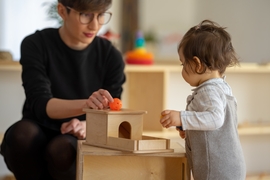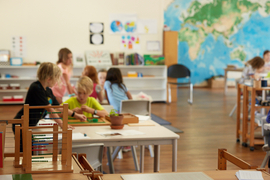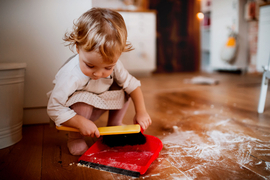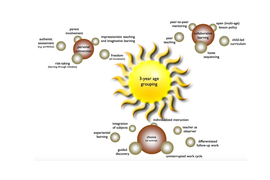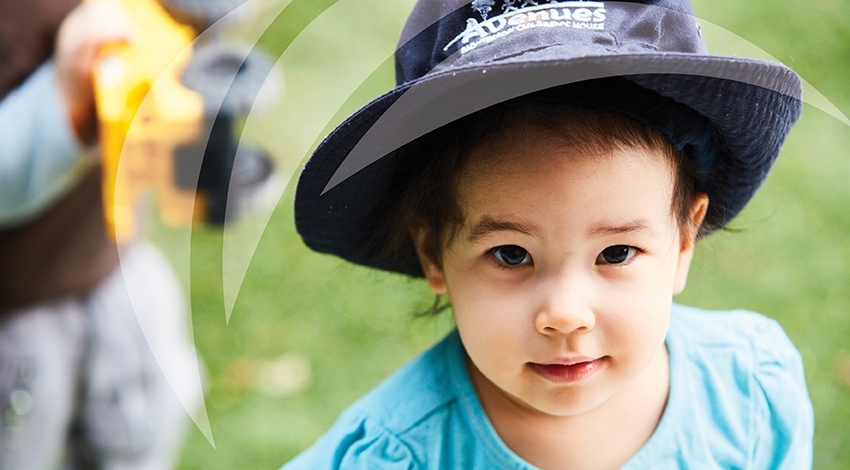
Parenting is one of the most rewarding and challenging roles we play as adults. Our society has high expectations of parents and yet we are not always able to access the resources we need to become the parent we want to be. Montessori can offer you a parenting framework from birth to maturity. It is more than an educational method; it is an approach to supporting the full development of your child.
Here are some simple, yet effective ways in which adults can support the development of a young child.
Movement
Even though your child is walking well, they will still need lots of practice so that they can refine their gross motor skills and their balance, as well as build up strength. Your child will want to test out the possibilities of their body and will enjoy running, jumping, hopping, climbing, pulling, balancing and carrying to name just a few exciting skills!
The minds of very young children are designed to enable them to learn simply by watching what others do around them. Your child will be particularly interested in imitating the activities they see you do around the home. Slow down your movements, particularly your hand movements to enable your child to take the information in. You may be surprised how easily they will be able to perform complex tasks.
Language
You are your child's best resource when it comes to language and communication. Your 2 to 3 year old child is learning their mother tongue simply by listening to the language they hear around them. A rich language environment will provide your child with an extensive vocabulary, this is the best possible foundation for writing and reading. Think of yourself as a language role model, use the correct pronunciation when speaking with your child and throw in the odd unfamilar word!
Name the things in your child's environment and talk to your child about the things you are doing.
Reading to your child regularly will support them to develop a love of books and stories. Your child will enjoy having the same story read to them over and over. You can talk to your child about what is happening in the story as it unfolds. This will help your child build their skills of comprehension. Singing is also a fun way to build vocabulary and it helps with recall as well!
If your child is using three word sentences by the age of 3 years, this is considered within the range of normal language development.
Your child may begin to show interest in the 'sounds' of the letters of the alphabet. Playing ISpy games with your child is a lovely way to introduce your child to the phonetic alphabet. Focus upon the sounds that the letters make rather than upon their names e.g. 'a' for apple, rather than 'A'.
Social and Emotional Development
These are the “Terrific Twos”! Your child is ready for social experiences with children of their own age. This will give them the opportunity to practice their developing social skills. These are the skills they have learned whilst watching you interact with others.
When your child is playing with others, encourage turn taking, but try to avoid power-struggles over sharing. Sharing is a skill which requires a level of self-control not typical of this stage of development.
Young children love to collaborate with adults and there are lots of things that they can do to play an active part in family life. You might like to consider setting up a low shelf for your child on which they might find a jug with a small amount of water and a glass. Simple food preparation activities such as spreading a cracker or cutting a banana, will give your child an experience of meeting their own needs.
Intense emotion and frustration can become an aspect of life with a young child. When collaborating with your child, providing them with a couple of options which you are happy with, may help in this respect. For example, rather than asking your child to use their cutlery to eat, you might invite them to choose either the red cutlery or the blue cutlery. As your child grows, children may need to be offered an increasing number of options until gradually they are able to think of the appropriate choices themselves. These are the limits within which your child is free to act. This is important for the development of their independence.
Young children continue to benefit from order and routine in their lives. Not simply in their physical environment but also in their social and temporal environment. Having a routine including a regular bedtime will provide your child with a sense of security. Ensuring that there is consistency in the adults in their lives will also support this.
Suggested Activities...
The following “Practical Life” activities will help you child learn how to care for himself and his environment. They will also encourage the development of balance, hand-eye co-ordination and concentration.
- Offer your child time needed to dress and undress himself. Try to give your child a choice of 2 sets of clothing in the morning to allow him to choose what he wants to wear that day
- Buy shoes that are easy for your child to put on and take off independently
- Encourage your child to brush his own hair by providing a low mirror and a brush in his room
- Have a face cloth handy for your child to wipe his face
- Show your child how to wipe his nose when needed
- Make water play purposeful – give him a brush to scrub outside walls and chairs
- Provide the opportunity for your child to prepare his own snack - e.g. to slice soft fruit and vegetables or to put spread on crackers with a blunt knife
- Have your child help you around the house tidying and cleaning. He will love to be involved with every day activities! A child-size broom will enable him to sweep up and accessible cloths will support him to mop up his spills
- When you child chooses to do something purposeful, try stepping back and allow him to play until he is ready to stop – repetition reinforces motor skill development and concentration
- Experiment with holding back the instinct to praise your child and if he has invited your opinion on their activity, offer encouragement instead. You could comment on the colour the have used in their painting, or how much banana they have chopped up. This is harder than you might think!
